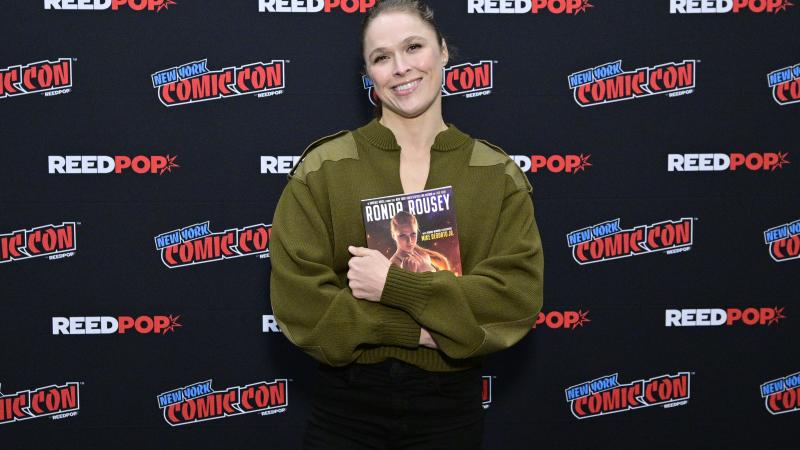Politically incorrect film 'Infidel' spotlights Middle Eastern Christians defying Iran
"I consider it a privilege to tackle controversial stories and to rattle people with the subjects I take on," says director Cyrus Nowrasteh. "What that means is I live in a free society … if I were banned from doing that, or the pressure was so great that I couldn't, then we're no longer a free society."
Cyrus Nowrasteh isn't cowed by Cancel Culture.
The director behind "The Stoning of Soraya M." and "The Young Messiah" doesn't shy from material that could inflame sensibilities, provoke outrage or spark threats of cancellation.
"The hardest thing about making films today is getting them seen, getting them shown and getting them noticed," Nowrasteh says. "I think controversy is good. It allows your film to be noticed, but you’ve got to have a thick flak jacket and the nerve to survive it and not panic."
The writer/director's newest film may put his doctrine to the test.
"Infidel," in theaters Sept. 18, follows a Christian blogger (Jim Caviezel) captured by an Iranian group alarmed at his public comments regarding faith.
The film, inspired by real-world kidnappings by the Iranian regime, involves honor killings, a subject most Western films avoid. The story also praises Middle Eastern Christians for standing up to Iranian law. "Infidel" isn't politically correct in the slightest — another opening for critics to target Nowrasteh.
It wouldn't be the first time.
The 2006 ABC miniseries "The Path to 9/11," which Nowrasteh wrote, inflamed Democrats by framing the Clinton administration as unprepared for the terrorist attacks. Former Clinton administration members like National Security Adviser Sandy Berger and Secretary of State Madeleine Albright slammed the production. Five Democratic Senators sent a furious letter to Disney CEO Bob Iger, a major Democratic contributor, suggesting the network's broadcast license could be pulled due to the project.
The two-part miniseries eventually ran just once, without commercials, drawing hearty ratings (between 12-13 million viewers each night). Only it's never been seen since. It's not available for rent, download or streaming, and Nowrasteh isn't hopeful that will change anytime soon.
"It's dead and buried as long as Bob Iger is running Disney," Nowrasteh says.
The director's 2009 film "The Stoning of Soraya M." also explored challenging material that forced the filmmaker to take greater care behind the scenes. He wouldn't reveal the Middle Eastern country where the production took place and employed actors who were Iranian exiles.
That film, based on a true story, depicts an Iranian woman falsely accused of adultery and the violent, medieval punishment she endured.
Nowrasteh, a Colorado native whose family hails from Iran, tracks the latest news coming from that Middle Eastern country. That means he's followed the cases of numerous Americans imprisoned by Iran over the years, including the high-profile situation involving Robert Levinson. The former FBI agent disappeared 13 years ago off the coast of Iran and was recently declared dead by his family.
The Iranian government denies any knowledge of Levinson or his current condition.
"In the back of mind I thought, 'Is there a movie here?'" the writer/director says.
He decided a fictional tale inspired by these events would better capture the struggles these prisoners faced.
"I've been struck by the fact that so many Americans have been held in Iran for many years," he says. "The problem with the real stories and the others is that they're uncertain … how do you do that as a movie?"
"Infidel" also showcases another element of Iranian culture, the "underground Christian movement" within the country, he says.
"Iran has the second most converts [to Christianity]" behind China, he says, noting it's fueled by women. "It's a direct result of the oppression under the Islamic Republic," he says.
The Christian group Open Doors says Iran is the ninth most dangerous place in the world to be a Christian, and the country’s government sees converts as threats against the Islamic Republic.
Some filmmakers might steer clear of this kind of material, but Nowrasteh recalls an early, positive connection to another rabble-rousing artist who helped guide his way: Oscar-winner Oliver Stone of "Platoon" and "JFK" fame.
"He said, 'When you make a movie you have to be a little bit rude.' I think that's true. The worst thing to do is make a movie and nobody notices," says Nowrasteh, who collaborated with Stone on the 2001 telefilm "The Day Reagan Was Shot."
Pundit-turned-filmmaker Dinesh D'Souza serves as an executive producer on "Infidel," but Nowrasteh says his latest project drew interest from more traditional Hollywood sources, too. It will be seen in a conventional fashion as well.
At a time when many films are debuting via Video on Demand services, "Infidel" earned a modest theatrical release.
"This was a situation where, financially, our executive producer and their team felt the theatrical run was the way to go," he says. "It helps all your ancillary stuff, like foreign sales and VOD."
Stone himself recently said he doesn't know if Hollywood will keep making his movies due to the incendiary topics he chooses.
Nowrasteh shares a similar complaint, saying a "prominent" filmmaking friend of his "doesn't believe he'll be able to make another film," given the current climate.
Nowrasteh also objects to a more recent trend of labeling films that either don't fit current cultural mores or may be misunderstood by modern audiences.
"Who are the people who are writing those labels? I don’t trust that," he says. "Ask Martin Scorsese or other major directors working today. Do they want labels attached to their films?"
Nowrasteh is circling a new project following the current "Infidel" promotion, one based on events of the last few years that he says would make an "incredible movie." He couldn't say more about the project, though.
"If I can make that happen, we'’ll be heading down that controversy pathway again," he says, laughing.
"I consider it a privilege to tackle controversial stories and to rattle people with the subjects I take on," he says. "What that means is I live in a free society … if I were banned from doing that, or the pressure was so great that I couldn't, then we’re no longer a free society."
















